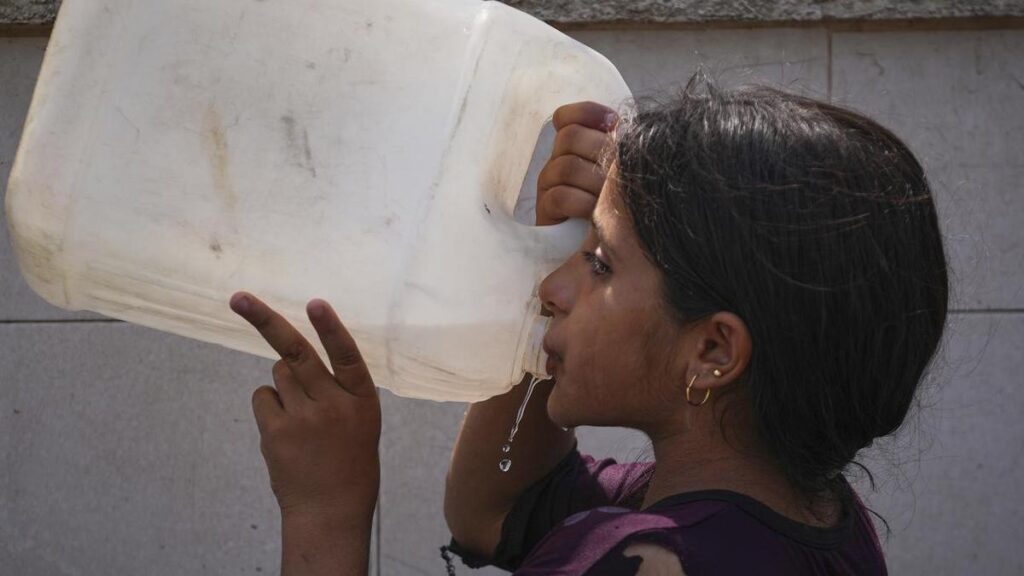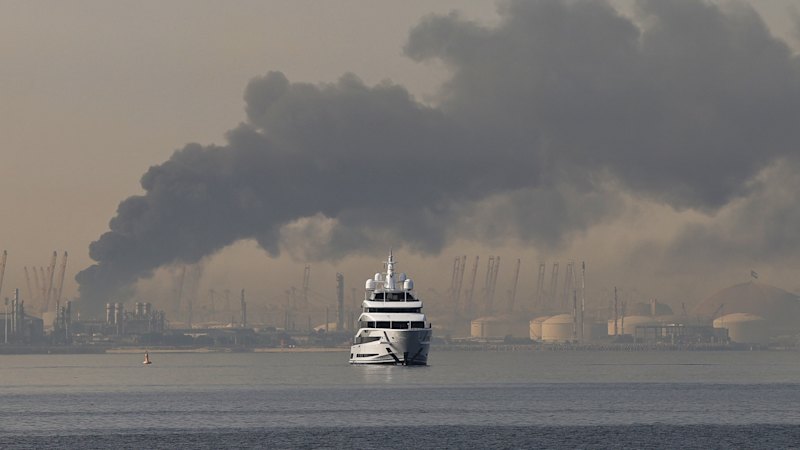
URGENT UPDATE: Families in Gaza are facing a devastating water crisis as soaring temperatures reach 35 degrees Celsius this July, forcing them to rely on contaminated water sources. Reports indicate that residents are resorting to drinking murky water that poses severe health risks, with UNRWA health centers now reporting an alarming average of 10,300 patients per week suffering from infectious diseases, primarily due to unsafe drinking water.
In the makeshift camps of Muwasi, parents like Rana Odeh endure grueling waits under the blistering sun just to fill their containers with tainted water. “We are forced to give it to our children because we have no alternative,” Odeh shared, highlighting the grim reality faced by displaced families in the region. The dire conditions have become a daily struggle, with water trucks arriving every few days, leaving families to ration every drop for drinking, cooking, and cleaning.
The humanitarian situation has deteriorated significantly since Israel’s military offensive began 22 months ago. Access to clean water has been severely restricted due to limited fuel imports, leading to the shutdown of desalination plants and damaged infrastructure. As the conflict continues, Gaza’s aquifers have become increasingly polluted, with sewage contaminating drinking supplies.
Residents often resort to filling bottles from the sea when water trucks fail to deliver. “It causes diseases for us and our children,” Odeh lamented, as parents in the camp juggle the urgent need for hydration against the threat of illness. Local aid organizations, such as Oxfam, warn that the few families with rooftop tanks cannot maintain them, resulting in yellow, unsafe water flowing from their taps.
The situation is compounded by a heatwave that has left families struggling in both outdoor and indoor spaces. Mahmoud al-Dibs, another displaced father, expressed his frustration: “Outside the tents it is hot and inside the tents, it is hot, so we are forced to drink this water wherever we go.” The few remaining sources of water are now primarily reliant on brackish groundwater, posing additional health risks.
The impact of consuming such contaminated water can be catastrophic. According to Mark Zeitoun, director general of the Geneva Water Hub, the mixing of untreated sewage with drinking water leads to serious health conditions, including dysentery and long-term kidney issues. UNICEF statistics reveal a shocking rise in acute watery diarrhoea cases, jumping from less than 20 percent of reported illnesses in February to 44 percent by July.
As families in Gaza continue to battle both the oppressive heat and the dire lack of clean water, the urgency for international assistance has never been clearer. The situation remains critical, with humanitarian organizations urging immediate action to provide relief and address the worsening conditions.
What happens next will be pivotal in determining the health and survival of countless families struggling in Gaza. The world watches as these communities fight for access to the most basic human necessity—clean water.






